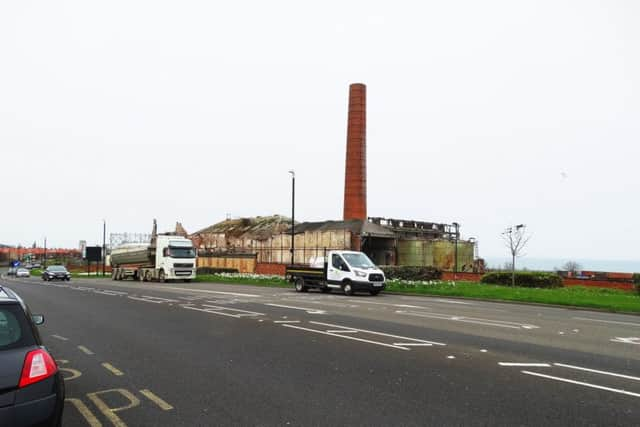Demolition of Sunderland's landmark paper mill underway


The former Edward Thompson paper mill and printworks in Ocean Road, Hendon, has been disused for the last four years.
Thompson’s produced more than 500 tons of paper a year at the plant for more than 20 years after taking it over following the departure of Canadian firm Domtar.
Advertisement
Hide AdAdvertisement
Hide Ad

Paper making stopped 12 years ago but the company was still printing on the site until 2014, when the decision to close it was prompted by a jump in energy costs, with all manufacturing transferred to the Sheepfolds industrial estate.
Outline planning permission for development of the Hendon site was initially granted in 2011, with an application for 300 new homes, plus 6,000 sq metres of commercial or industrial space, and an application to demolish the plant was made last year.
Echo reader Patrick Monaghan took these shots of the work under way on site: “I was just passing when I saw the demolition in progress, so I jumped at the chance before it was too late,” he said.
Edward Thompson, which celebrated its 150th anniversary last year, manufactures a number of products including printed games for markets worldwide.
Advertisement
Hide AdAdvertisement
Hide Ad

It was Frank Cronin, father of current boss Paddy, who turned the family business into the world’s biggest manufacturer of bingo cards.
The firm was a small jobbing printer and stationer when Frank joined dad John in the family business.
When a local parish priest ordered bingo tickets for a fund-raiser, Frank sensed an opportunity.
The first cards were ordered in, but within months, Edward Thompson was printing its own. A firm with fewer than a dozen employees in 1959 was employing more than 300 by the mid-60s and printing 50million cards a week.
Advertisement
Hide AdAdvertisement
Hide Ad

Frank’s gift for numbers saw him expand the number of ticket combinations from fewer than 2,000, to nearly 17,000 and the firm still uses his calculations to draw up its cards today.
The late 1970s saw the firm making 150million tickets a week, but it was the introduction of newspaper bingo which provided the biggest boost in the 1980s.
By 2000, annual sales had reached £40million, with business almost equally split between bingo, the paper mill and printing.